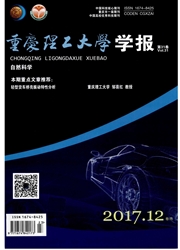

 中文摘要:
中文摘要:
针对单个零售商和单个供应商构成的二级供应链,分别采用回购契约和收益共享契约的报童模型展开行为研究。研究发现:当零售商具有损失规避和公平偏好行为时,两种契约都能实现供应链协调,但协调时零售商、供应链整体利润都小于传统条件下的利润;当批发价格、回购价格、零售价和收益共享系数满足一定关系时,两个契约是等价的;零售商最优订货量随公平偏好或损失规避的变化趋势比供应链明显。
 英文摘要:
英文摘要:
We set a two-stage supply chain model of a supplier and a retailer adopting buyback contract and revenue sharing contract accordingly,and we analyzed the influence of fairness concern and loss aversion on the retailer's optimal order quantity and supply coordination under these two contracts' model. We proved that even the fairness concern and loss aversion of retailer would not change the coordination status of buyback contract and revenue sharing contract,the profit of retailer and supply chain is lower than the traditional condition. When the wholesale price,retail price,buyback price and revenue are sharing coefficient subject to some equations,the buyback contract is equal tothe revenue sharing contract. The changing extent of order quantity is more obvious than that of supply chain with retailer's fairness concern optimal and loss aversion.
 同期刊论文项目
同期刊论文项目
 同项目期刊论文
同项目期刊论文
 期刊信息
期刊信息
